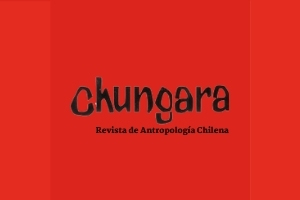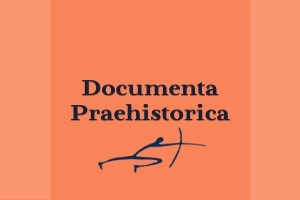Posts com a Tag ‘1973’
Chungara | UT | 1972
Chungara Revista de Antropología Chilena (Arica, 1972-), es publicada por el Departamento de Antropología, de la Universidad de Tarapacá, Arica, Chile.
Su objetivo principal es difundir estudios originales, empíricos o teóricos, en distintos campos de la antropología y ciencias afines entre los que se incluyen antropología social o cultural, arqueología, bioarqueología, etnobotánica, etnohistoria, geografía, historia, lingüística, paleoecología, semiótica, zooarqueología, museología y patrimonio.
La revista tiene como foco geográfico a la región andina de Sudamérica, sin embargo, se aceptan manuscritos de otras áreas geográficas con aportes teóricos y metodológicos compatibles a las temáticas de la revista con fines comparativos. En este ámbito, las contribuciones tanto teóricas como empíricas deben contribuir a la comprensión, replanteo y generación de problemas en las distintas disciplinas de la antropología y ciencias afines.
Periodicidade trimestral.
Acesso livre.
ISSN 0717-7356 versión en línea
ISSN 0716-1182 versión impresa
Acessar resenhas
Acessar dossiês
Acessar sumários
Acessar arquivos
Documenta Praehistorica | LU | 1964
In 1964 a group of enthusiasts around the eminent Slovenian archaeologist Professor Josip Korošec at the University of Ljubljana established a new journal entitled A Report on the Research of the Neolithic and Eneolithic in Slovenia (Poročilo o raziskovanju neolita in eneolita v Sloveniji). Professor Korošec was the first editor and published the first two volumes, which were dedicated to the results of the excavations in the Ljubljansko barje region. After Professor Korošec passed away, the journal was edited by Professor Tatjana Bregant for the next twenty years (3rd to 21st Volumes). In this period, the journal became a respectable publication in Slovenia and the former Yugoslavia for topics relating to the Paleolithic, Neolithic and Eneolithic periods. A number of palaeoenvironmental and palaeoeconomic studies were also published alongside the archaeological topics.
Since the 22nd Volume, the editor has been Professor Mihael Budja, and the editorial policy has shifted from regional to global scale, and for its 25th anniversary the journal changed its title to Documenta Praehistorica. The journal started to publish selected papers that had been presented at the international conference established at that time entitled ‘The Neolithic Seminar’, which has been organised annually by the Department of Archaeology at the Faculty of Arts in Ljubljana for the past twenty years. The Seminars attracted leading researchers from the field and soon became a hub for discussing theoretical concepts, interpretative models and the results of interdisciplinary research studies and projects in Europe and Asia. A ‘Ljubljana school’ of Neolithic studies was formed within this intellectual milieu by a group of researchers who applied and developed ideas discussed at the seminars and in the journal. The papers in Documenta Praehistorica address studies that range from cultural and typological topics to archaeometry, from paleoclimate to paleoeconomy, from demography to archaeogenetics, and from symbolism to identity.
Since 1999, Documenta Praehistorica has had international members on the editorial board alongside Slovenian researchers, and since 2005 it has been enriched by a new web editor and a technical editor. With the formation of the journal’s web page in 2001 the published papers can also be accessed on-line.
Documenta Praehistorica is the only international journal to focus on interdisciplinary research based on Neolithic studies. The main strength of the journal is that it provides an opportunity for the publication of diverse approaches, theories and specific case studies, while maintaining a coherent editorial policy in addressing significant topics and studies relating to the Neolithic and Eurasian prehistory in general. Documenta Praehistorica has thus emerged as a central hub where the richness of different approaches, theories and ideas in contemporary Neolithic studies is easily recognisable.
The publication of an article in a peer-reviewed journal Documenta Praehistorica (1964) is an essential building block in the development of a coherent and respected network of knowledge. It is a direct reflection of the quality of the work of the authors and the institutions that support them. It is therefore necessary to agree upon standards of expected ethical behaviour for all parties involved in the act of publishing: the author, the editor (and the editorial board), the peer reviewer and the publisher.
The Ljubljana University Press, Faculty of Arts (Znanstvena založba Filozofske fakultete Univerze v Ljubljani) as publisher of the journal Documenta Praehistorica takes its duties of guardianship over all stages of publishing extremely seriously and we recognize our ethical and other responsibilities. We are committed to ensuring that advertising, reprint or other commercial revenue has no impact or influence on editorial decisions. In addition, the Faculty of Arts, University of Ljubljana and the editorial board of Documenta Praehistorica will assist in communications with other journals and/or publishers where this is useful and necessary.
Our ethic statements are based on COPE’s Best Practice Guidelines for Journal Editors and on existing Elsevier policies.
Documenta Praehistorica is published one issue per year.
This journal provides immediate open access to the full-text of articles at no cost on the principle that making research freely available to the public supports a greater global exchange of knowledge.
Acessar resenhas
Acessar dossiês
Acessar sumários
Acessar arquivos [A partir de 2001]



